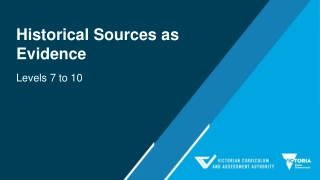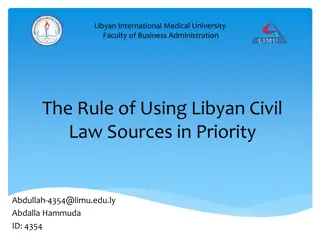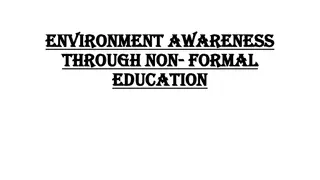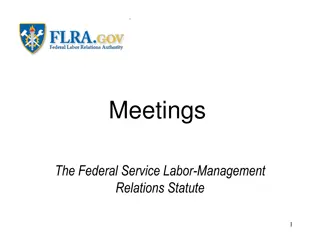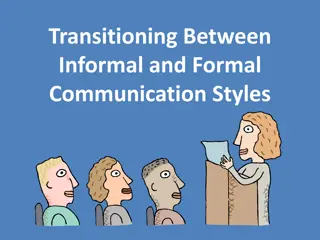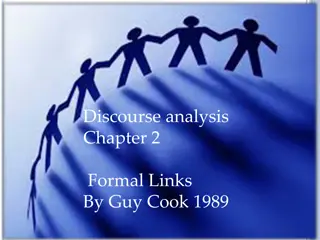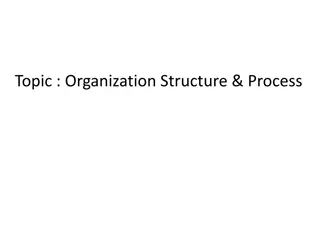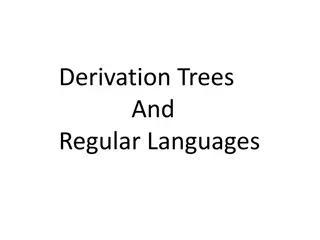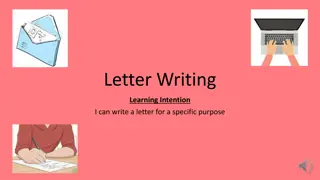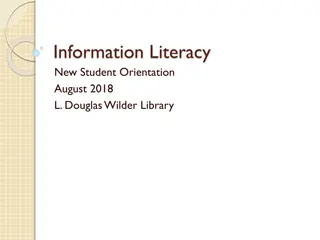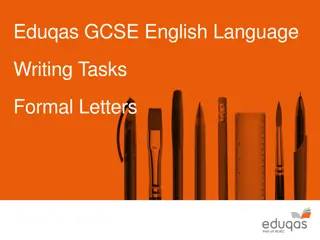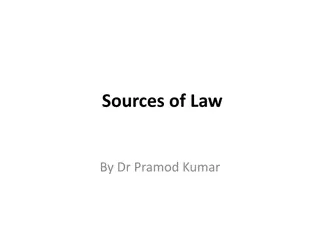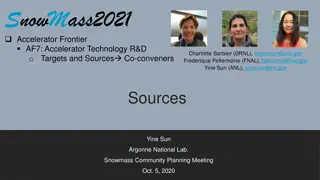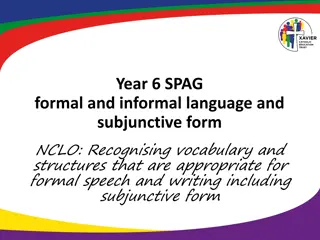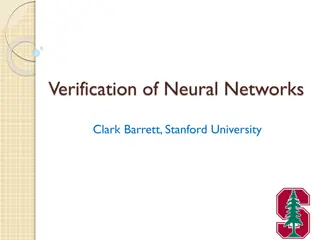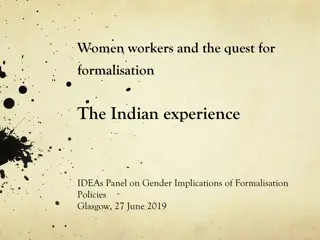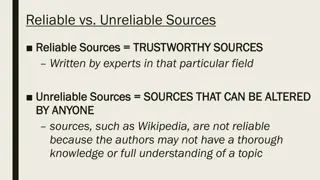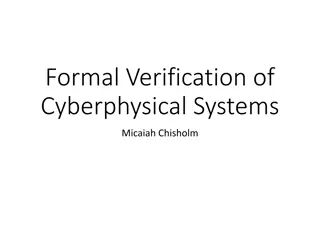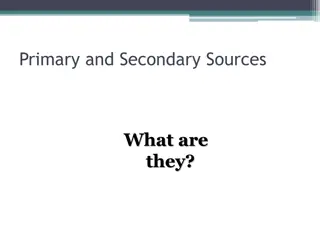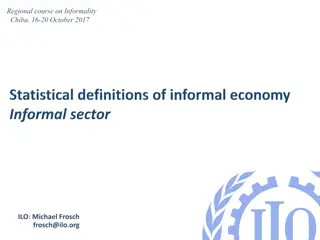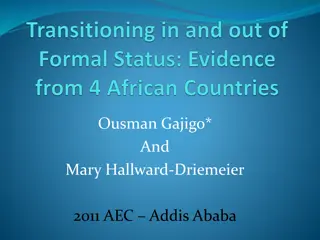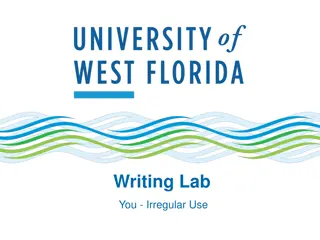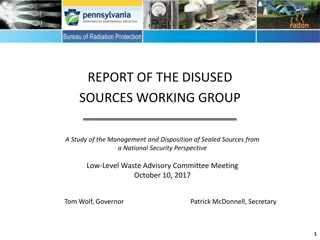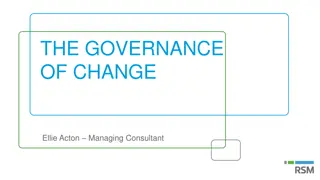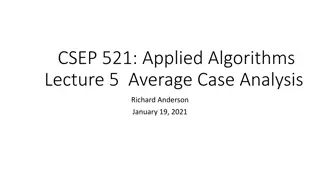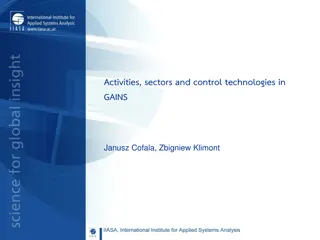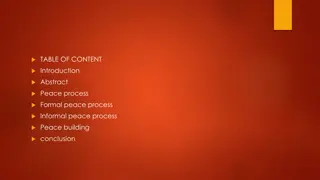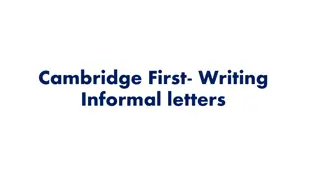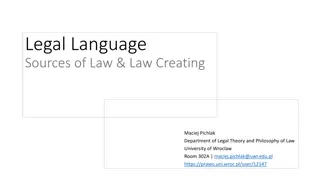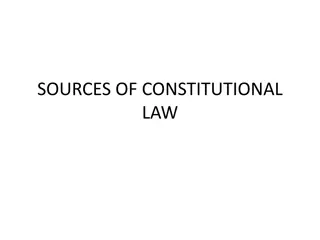Historical Sources as Evidence
Explore the importance of historical sources as evidence in the Victorian Curriculum History context, focusing on how students analyze, evaluate, and utilize sources to create historical explanations and arguments. Discover the significance of primary and secondary sources, perspectives of historica
1 views • 46 slides
Sustainable Fashion Solutions for Repurposing Formal Wear
Transforming formal wear from single-use items into sustainable fashion solutions is vital for reducing textile waste and environmental impact. This article explores the challenges of post-party formal dresses, the environmental consequences of textile waste, and innovative approaches to upcycling d
9 views • 14 slides
Mastering Formal Letter Writing in Education
Enhance your formal letter writing skills in education with a focus on job applications and key features of formal correspondence. Explore the purposes of writing letters and learn to choose the appropriate writing style for each type. Practice completing expressions for formal letters effectively.
5 views • 27 slides
Governance and Managerial Leadership of Formal Social Protection in Africa: Insights from Cameroon's National Social Insurance Fund (CNPS)
This presentation delves into the governance and managerial leadership of formal social protection in Africa, focusing on Cameroon's CNPS system. It discusses the institutional evolution of social protection, the challenges faced by bureaucratic and political stakeholders, and the roles of various s
0 views • 8 slides
Understanding Libyan Civil Law: Sources and Application
Civil law in Libya draws influences from Ottoman, French, Italian, and Egyptian sources, with a move towards a legal system based on Sharia. This article discusses the priority of using Libyan Civil Law sources and emphasizes the importance of laws that cater to the wellbeing of its citizens. The so
1 views • 7 slides
Enhancing Environmental Awareness Through Non-Formal Education Initiatives
Non-formal education plays a crucial role in enhancing environmental awareness through programs such as eco-clubs, population education initiatives, and the National Green Corps. These initiatives aim to educate individuals, especially children, about environmental issues, leading to better decision
0 views • 7 slides
Understanding Formality in Meetings under the Federal Service Labor-Management Relations Statute
The Federal Service Labor-Management Relations Statute provides guidelines for formal discussions and investigative examinations in the context of labor relations. It outlines the rights of unions to representation in formal meetings, emphasizing the importance of subject matter and formality. The d
0 views • 34 slides
Sources of Drugs and Their Origins
Drugs can be sourced from six major categories: plants, animals, minerals/earth, microbiological sources, semi-synthetic sources, synthetic sources, and recombinant DNA technology. Plant sources, being the oldest, provide various medicinal properties through leaves, flowers, fruits, seeds, roots, ba
0 views • 11 slides
Mastering Communication Styles: Informal vs. Formal
Explore the nuances of transitioning between informal and formal communication styles, understand the components of different forms of communication, and learn when to apply each style in appropriate situations. Delve into the characteristics and examples of informal and formal communication, and di
0 views • 18 slides
Understanding Discourse Analysis: Formal Links and Contextual Connections
Discourse analysis involves examining language beyond grammar rules, focusing on formal links within sentences and contextual connections outside of language. Guy Cook discusses how formal features shape discourse meaning and how verb forms influence sentence coherence. The use of parallelism in spe
3 views • 22 slides
Understanding Organization Structure and Process
Organization structure is the formal arrangement of relationships within a firm, important for achieving objectives efficiently. It involves elements like job differentiation, integration, authority systems, and flow of information. The formal and informal organizational structures play distinct rol
5 views • 62 slides
Understanding Formal and Informal Writing Styles: A Guide for Year 5 Students
Explore the concepts of formal and informal writing styles through engaging activities and examples in this educational resource tailored for Year 5 English students. Learn to distinguish between the two styles, understand the criteria for each, and practice transforming sentences from informal to f
1 views • 18 slides
Understanding Derivation Trees and Regular Languages in Formal Language Theory
Derivation trees play a crucial role in formal language theory, aiding in visualizing the process of deriving strings from a formal grammar. The concept of leftmost and rightmost derivations, along with their respective tree representations, provide insights into how strings are generated using gram
1 views • 15 slides
Learning to Write a Formal Letter of Complaint
Explore the process of writing a formal letter of complaint with the help of visual aids and an example scenario. Learn about the structure and key components of such letters, including addressing the issue, expressing concerns, and requesting resolution. Enhance your letter-writing skills by unders
2 views • 15 slides
Understanding Information Literacy: A Comprehensive Guide for Students
Information literacy is crucial for academic success. It involves the ability to recognize the need for information, locate relevant sources, evaluate their credibility, and effectively use the information for research and presentations. Primary and secondary sources play a vital role in gathering i
0 views • 19 slides
Mastering Formal Letter Writing: Tips and Examples for Success
Explore the art of formal letter writing with this comprehensive presentation covering the fundamentals of planning, content, features, and layout. Learn how to address the audience, define the purpose, structure your letter effectively, and craft the right tone. Discover essential tips for opening
0 views • 22 slides
Understanding Sources of Law in Legal Systems
Exploring the sources of law, this content delves into the concept of formal and material sources categorized by legal scholars. It examines how legal systems differ in recognizing sources such as precedents, legislation, customs, and treaties. The focus shifts to Indian law, highlighting the signif
1 views • 23 slides
Understanding the Sources of Law: Definitions and Classification
The term "sources of law" refers to the origins from which rules of human conduct derive their legal force and binding character. This concept varies among writers and includes factors like Hindu scriptures, sovereign authority, historical documents, customs, and more. This article explores differen
0 views • 11 slides
Accelerator Technology R&D Targets and Sources Overview
The SnowMass2021 Accelerator Frontier AF7 focuses on Accelerator Technology R&D, exploring targets and sources such as high brightness electron sources, muon sources, and high intensity ion sources. The community planning meeting discussed various Letter of Interest submissions outlining innovative
0 views • 7 slides
Understanding Formal Invitation Card Etiquette
Formal invitations play a significant role in conveying important event details and setting the tone for the occasion. They provide complete information including the occasion, names of hosts and invitees, date, time, venue, and more. The format of formal invitations follows specific guidelines, usi
0 views • 16 slides
Exploring Orto-Computing: Bridging the Gap Between Formal and Phenomenological Computing
Meaningful experiments suggest a transition from the formal, Turing-based approach to a structural-phenomenological one called Orto-Computing. This innovative concept integrates mind-matter interaction and non-formal functions within computational systems, offering potential solutions to complexity
0 views • 18 slides
Understanding Formal and Informal Language with Subjunctive Form
Explore the distinctions between formal and informal language, along with the appropriate usage of the subjunctive form. Learn how to enhance your writing by identifying key vocabulary and structures for formal speech and writing. Get insights on recognizing and utilizing formal language in various
0 views • 9 slides
Software Bugs and Formal Verification in Critical Systems
Software bugs have caused catastrophic events like radiation overdoses and rocket explosions, emphasizing the importance of formal verification in ensuring software correctness. Formal verification uses mathematical models to prove software correctness, offering higher assurance, especially in safet
1 views • 26 slides
Challenges and Policies in Formalising Women Workers in India
The Indian labor market faces significant challenges in formalizing women workers, with a noticeable decline in women's employment especially in rural areas. Despite recent policy attempts at formalization, such as the Unorganized Workers Social Security Act 2008 and the Maternity Benefits Act, wome
0 views • 19 slides
Understanding Reliable and Unreliable Sources for Research
Recognize reliable and unreliable sources for research. Reliable sources, such as books and peer-reviewed journals, are authored by experts in the field. Unreliable sources like Wikipedia and blogs can be altered by anyone. Learn how to evaluate the credibility of online sites based on their URLs an
0 views • 10 slides
Formal Verification of Cyberphysical Systems and Future Certification Methods
Explore the formal verification techniques and tools used in cyberphysical systems, including KeYMaera verification tool, applications in distributed car control and adaptive cruise control, and the formal verification of ACC algorithms. The future work section highlights considerations for sensor d
0 views • 17 slides
Understanding Primary and Secondary Sources in Research
Primary sources provide firsthand information from the time period being studied, while secondary sources offer interpretations based on primary sources. Examples of primary sources include autobiographies, speeches, historical documents, published firsthand accounts, and sound recordings. Secondary
0 views • 23 slides
Understanding the Transition to Formal Economy: Concepts and Recommendations
The concept of the informal economy, formal arrangements, and the distinction between informal sector and informal employment are explained in detail. Recommendations and resolutions from ILO concerning the transition from informal to formal economy, statistical guidelines, and definitions are highl
0 views • 26 slides
Determinants of Formality and Informality in African Firms
This research explores the factors influencing the formal registration of firms in African countries and the impact of transitioning between formal and informal sectors. It delves into the effects on firm performance, access to infrastructure and finance, tax revenue, and worker welfare. The study a
0 views • 20 slides
Effective Use of "You" in Writing: Informal vs. Formal Guidelines
Understanding the usage of the second-person pronoun "you" in writing is essential for clear communication. In informal settings, "you" is used broadly to address readers directly or as an indefinite pronoun. However, in formal writing, it's crucial to avoid potential reader bias by using alternativ
0 views • 4 slides
Disused Sources Working Group Report on National Security Perspective
The Disused Sources Working Group (DSWG) report focuses on managing and disposing of sealed sources to reduce national security risks. Formed in 2011, DSWG developed recommendations to enhance the management of disused sealed sources. The report categorizes sealed sources based on potential harm and
0 views • 15 slides
Understanding the Importance of Formal Governance in Project Management
Formal governance in project management is crucial for ensuring robust decision-making, optimizing project portfolios, improving relationships with stakeholders, minimizing risks, and maximizing benefits. By adopting a formal approach to governance, organizations can enhance project and program perf
0 views • 14 slides
Exploring Formal SignWriting in Sign Language Projects
Delve into the world of Formal SignWriting (FSW) as presented at the SignWriting Symposium in 2016 by Stephen E. Slevinski Jr. Discover how FSW, supported by the Center for Sutton Movement Writing, offers a formal language system for sign languages with stable standards and diverse implementations.
0 views • 29 slides
Guidelines for Writing Effective Formal Letters
Learn about the types of formal letters, elements of a successful letter, paragraph planning tips, and the style to use in formal letters. Understand how to structure letters of complaint effectively, including the importance of clarity, justification, and clear presentation of complaints and sugges
0 views • 15 slides
Understanding Average Case Analysis of Algorithms
Explore the average case performance of algorithms, focusing on topics like stable marriage, the coupon collector problem, and formal settings for random inputs. Learn about stable matching scenarios, formal notions, and examples illustrating the concepts. Discover the formal problem of matching pre
0 views • 29 slides
Activities, Sectors, and Control Technologies in GAINS Research
The GAINS research by Janusz Cofala and Zbigniew Klimont focuses on aggregation criteria for emission sources, macroeconomic parameters such as population and GDP, aggregation of energy-related sources, transport sources, and process sources. It also covers specific VOC processes/sources like solven
0 views • 13 slides
Comprehensive Overview of Peace Processes and the Role of Women and Girls
Peace processes involve a variety of formal and informal activities, with the participation of different actors such as international organizations, grassroots movements, and individuals. Formal peace processes include conflict prevention, peace-building, and disarmament, while informal activities e
0 views • 12 slides
Mastering the Art of Writing Informal and Formal Letters
Explore the nuances of writing informal and formal letters, covering various types of letters, essential components, stylistic differences, and examples of formal versus informal expressions. Learn how to craft engaging letters for different purposes with appropriate greetings, introductions, main b
0 views • 6 slides
Understanding Legal Language: Sources of Law & Law Creation
Explore the concept of sources of law, including formal and informal sources, in the context of legal theory. Learn about the role of constitutions, legislation, case law, and other legal frameworks in establishing the legal, political, and economic order of states.
0 views • 16 slides
Understanding the Sources of Constitutional Law
Explore the various sources of constitutional law, including legal basis, formal sources of law, values influencing norms, and the role of jurisprudence. Delve into concepts like Hans Kelsen's method of creating law, the origin of constitutional law, and the factors influencing it. Discover how diff
0 views • 11 slides
